the future is fair
 Written by Virginia Jones
Designed by Madison Robb
Photos by Josh Griggs and Robert Weber
Written by Virginia Jones
Designed by Madison Robb
Photos by Josh Griggs and Robert Weber
Published by Fairtrade Australia New Zealand

 Written by Virginia Jones
Designed by Madison Robb
Photos by Josh Griggs and Robert Weber
Written by Virginia Jones
Designed by Madison Robb
Photos by Josh Griggs and Robert Weber
Published by Fairtrade Australia New Zealand

The coffee featured in this book was grown by Fairtrade farmers
Those farmers and everyone else in the supply chain were treated fairly
They were paid the Fairtrade Minimum Price to cover their costs of production

Those same farmers were supported to look after the environment To empower women And to send their children to school
The extra Fairtrade Premium their communities received might have helped them build medical centres Or buy better farming tools
Fewer than 1% of the world’s farmers are Fairtrade And many other farmers aren’t paid fairly
That’s why choosing Fairtrade means choosing a fairer future.
Our
These
We have local staff on the ground in PNG, Timor-Leste and Fiji.
 Fairtrade Australia New Zealand (ANZ) is focused on the fair treatment of farmers and workers throughout the world but we are privileged to work directly with farmers in the Pacific.
team supports over 50,000 farmers in our region: Papua New Guinea (PNG), Timor-Leste, Fiji, Samoa and Tonga.
farmers are part of 17 different producer organisations producing coffee beans, cocoa, sugarcane, ginger and vanilla.
Fairtrade Australia New Zealand (ANZ) is focused on the fair treatment of farmers and workers throughout the world but we are privileged to work directly with farmers in the Pacific.
team supports over 50,000 farmers in our region: Papua New Guinea (PNG), Timor-Leste, Fiji, Samoa and Tonga.
farmers are part of 17 different producer organisations producing coffee beans, cocoa, sugarcane, ginger and vanilla.
Papua New Guinea is an island country lying in the south-western Pacific with Indonesia to the west and Australia to the south. It is mainly breathtaking mountains but also includes low lying plains and several active volcanoes.
Although it’s a resource rich country, nearly 40% of the 8.8 million people who live in PNG are in poverty. Around 80% of the population derive their livelihood from farming with most dependent on subsistence and small cashcrop agriculture.

Fairtrade ANZ works with over 9,000 farmers and their communities in PNG from nine different producer organisations that trade in coffee and cocoa. Coffee is the most established Fairtrade commodity in PNG and the climate is well suited for growing it organically.
Our work in PNG is focused on building business capacity in producer organisations through support with accounting, business collaborations and supply chain development. We also run extensive training in coffee quality improvements, gender equality and adaptation to climate change. In addition, we are currently conducting a study around carbon trading in PNG.
The Fairtrade journey starts with the farmers and workers in developing countries who form cooperatives or groups. Around 80% of the world’s farmers have smallholdings of less than 2.5 acres so working together makes them stronger. If the cooperative decide they want to become Fairtrade certified, they go through a process where they have to agree to meet a range of standards around governance, working conditions, environmental management and gender equality. Fairtrade supports them to meet these standards.
Once certified, the cooperative/producer organisation can trade all over the world but anyone buying Fairtrade products must agree to pay (at least) the Fairtrade Minimum Price. This price is set by Fairtrade based on what the farmers need to cover their costs and is often much higher than the market price.
Above and beyond the Minimum Price, the producer organisation also receives another sum of money called the Fairtrade Premium. This money doesn’t go directly to individual farmers but instead goes to the cooperative and the whole community decides together how that money should be spent. This includes projects like wells for drinking water, hospitals and farming equipment. In the case of coffee, at least 25% of the Premium is invested back into coffee quality improvement and training.
Fairtrade continues to work with producers after they are certified to encourage product improvement and development as well as ongoing support in areas of fair pay, gender equality and sustainability.
In addition to our work with farmers in the Pacific, Fairtrade ANZ works directly with local businesses who sell Fairtrade products. We also work to raise awareness of Fairtrade in both Australia and New Zealand.
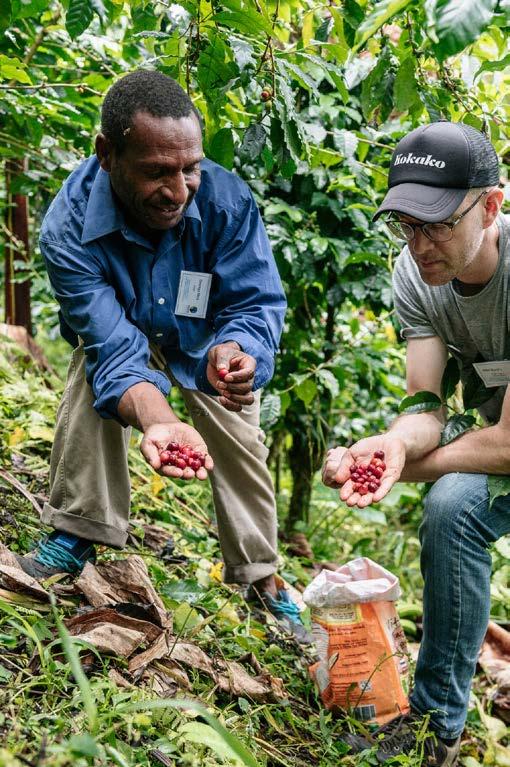

The Fairtrade System ensures producer organisations receive a fair price, the Fairtrade Minimum Price, for their products. This price is set in consultation with producers and traders and is based on what is needed to cover sustainable production costs and provide for the basic needs of a family.


The Fairtrade Minimum Price helps to protect farmers from damaging fluctuations in world market prices and supports them to plan for the future.
Fairtrade is the only ethical label with a guaranteed Minimum Price for almost every commodity it certifies.

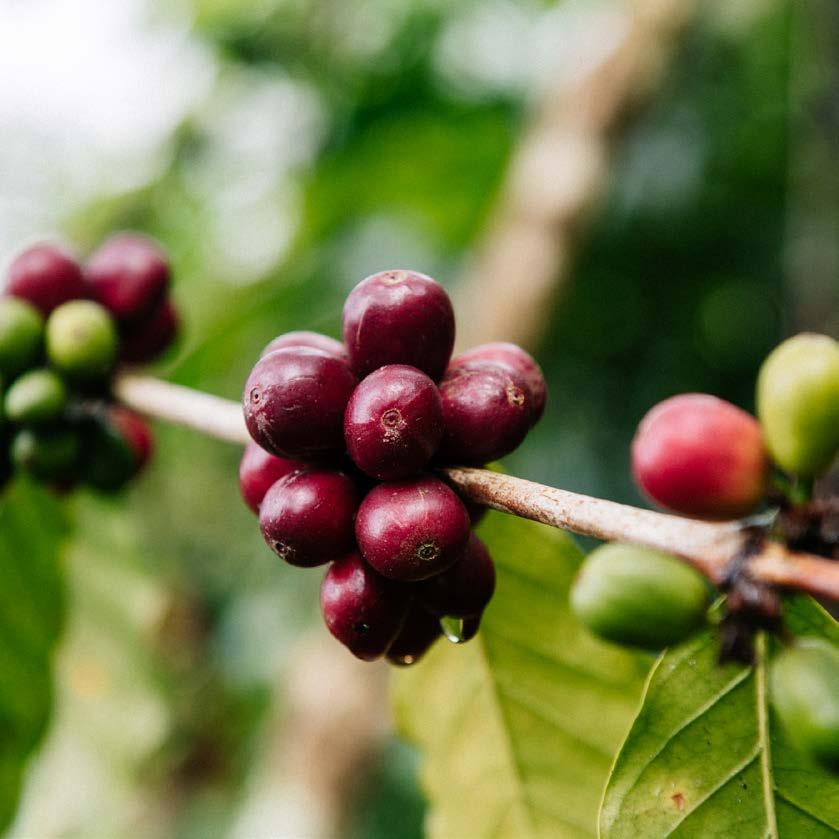


“The Fairtrade Premium has supported us in many ways; for school projects like building teachers’ houses, building classrooms, supplying school library books and classroom desks.
For health, it has helped us by supplying mattresses for rural wards, supplying maternity beds for mothers to give birth and it has also helped us with a water project that provided good water for more than 20 villages.”
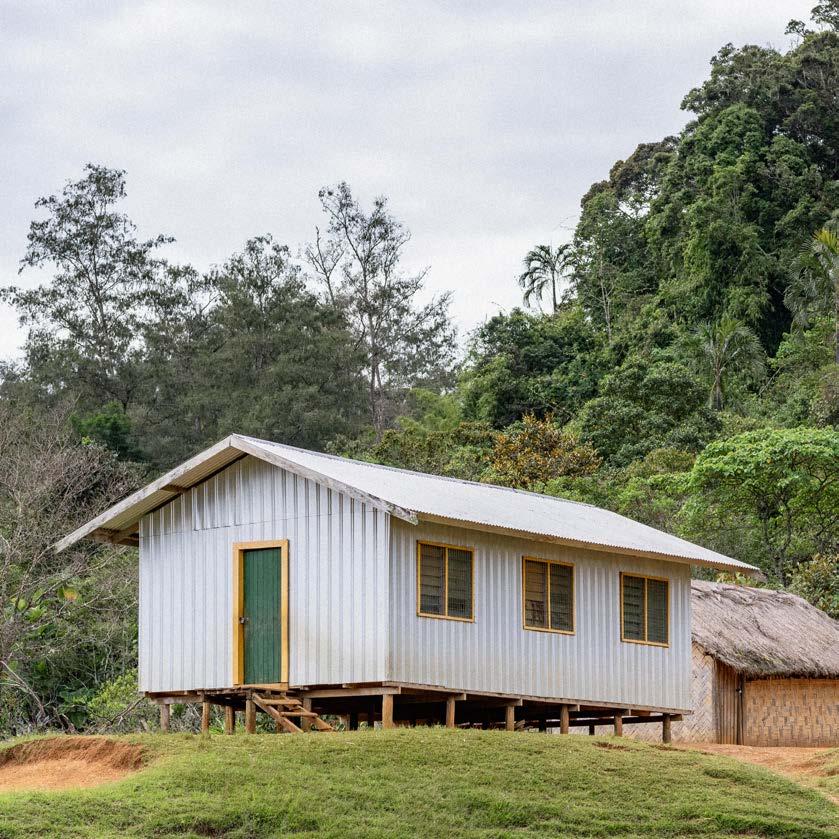
The Fairtrade Premium is an additional sum of money that is provided to the producer organisation to improve social, economic and environmental conditions.
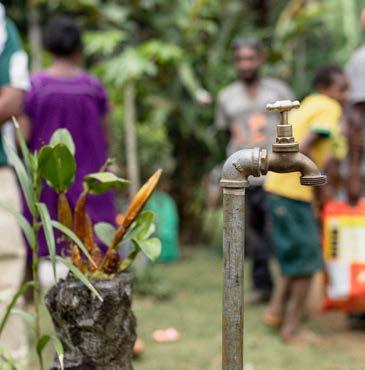

It is collected into a communal fund and once a year the members meet for a General Assembly to decide, all together, how the money should be spent.
For coffee, the Fairtrade Premium is an extra 20 US cents per pound.
Fairtrade has a set of ‘Standards’ that everyone in our system must meet. The Standards address issues like discrimination, fair working conditions, child labour, access to finance and environmental protection.
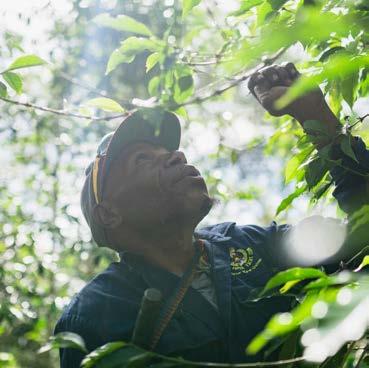
A product can only be Fairtrade certified if every part of the supply chain from farmers to manufacturer have met Fairtrade Standards.
We work with each supplier to assist them to meet the Standards. For farmers that means we have an ongoing relationship to help them to farm sustainably, have good governance, provide opportunities for women and improve working conditions.

We also support them through projects like pre-financing initiatives and facilitating long term partnerships so they can grow and take control of the trading process.
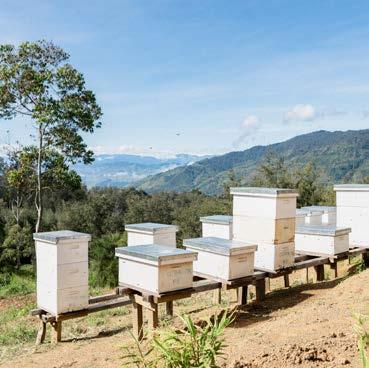
“We saw the Fairtrade Standards to be very good because through the Fairtrade Standards, we have brought about many good benefits: how we think and act, change of positive mindset and attitudes, and how we as members must make efforts to follow and practice these Fairtrade Standards.”
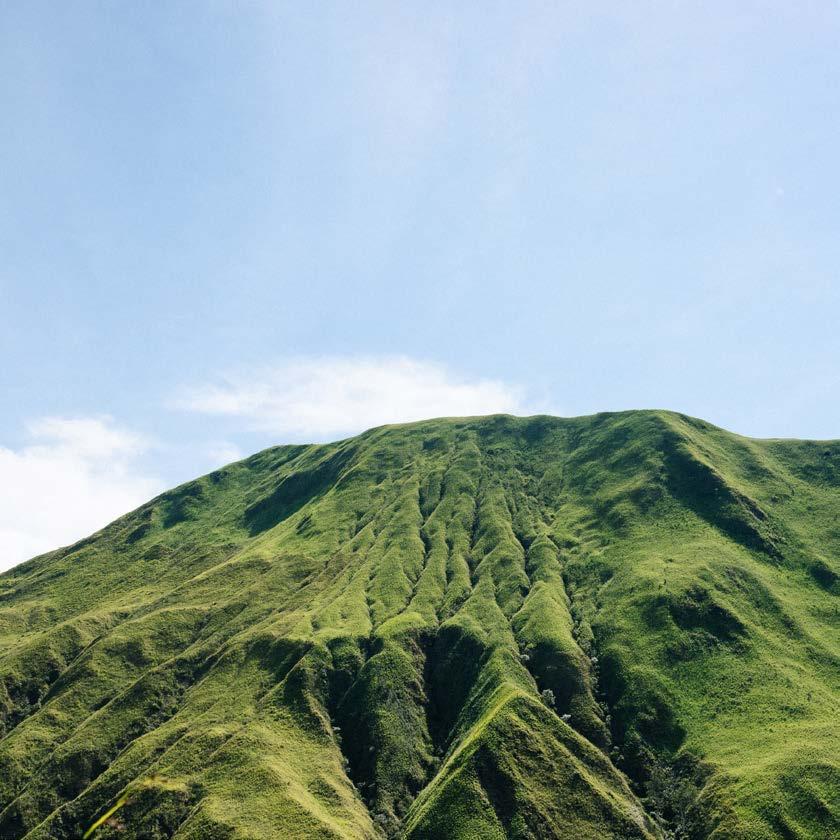
The women from Nekansi Fairtrade farming cooperative harvest the byproduct of coffee cherries (the pulp) for income diversification. This cascara is currently being used as an ingredient in a specialty tea produced in New Zealand.




“This gender training is about men and women holding hands and supporting each other and working together. It is about equality. Men and women must respect each other, and our life will be all right.”
- Mr. Kevi Pao, the Vice Chairman of Roots 1 in Eastern Highlands province

The gender gap continues to be a serious global issue. While we are making progress every day, there is still a great divide in the opportunities and rights women have compared to men. This is especially true for women involved in agriculture in developing countries.
The goal of Fairtrade is to make sure women in producer communities are represented, their voices are heard, and they are empowered to access Fairtrade benefits.
To achieve this, Fairtrade has embedded gender equality into our programs. This means, to be a Fairtrade producer there are strict rules and regulations to stamp out bias and discrimination based purely on gender. We work with farmers to implement gender policies and goals. A producer organisation that doesn’t support equality cannot be Fairtrade certified.
Beyond this, Fairtrade has a huge range of programs and training that empower women to increase their participation in the governance process, participate in programs such as leadership workshops and to get savvy when it comes to market info, getting credit and improving how they farm.
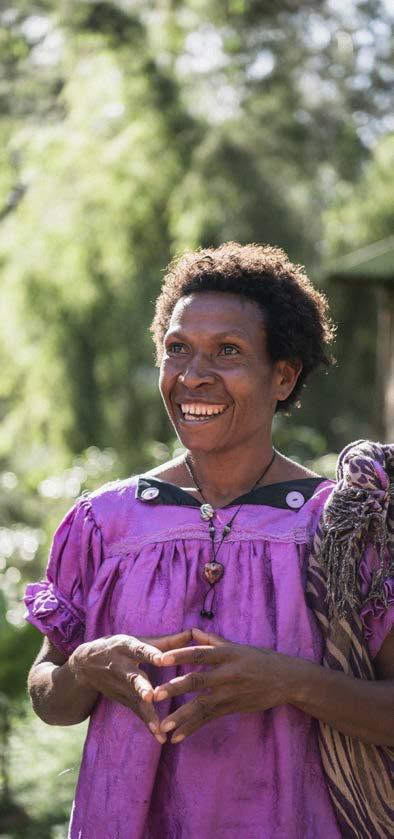
“I see coffee as the major income earning cash crop for me and my family. I pay school fees for my children using coffee money. I pay for our personal needs and our household needs using coffee money.
I have no husband to provide the kind of support I need. Therefore, I would like to remain for as long as I can with the cooperative so that I can get some help from the group for a widow like me. My dream is… to build a new permanent house.”
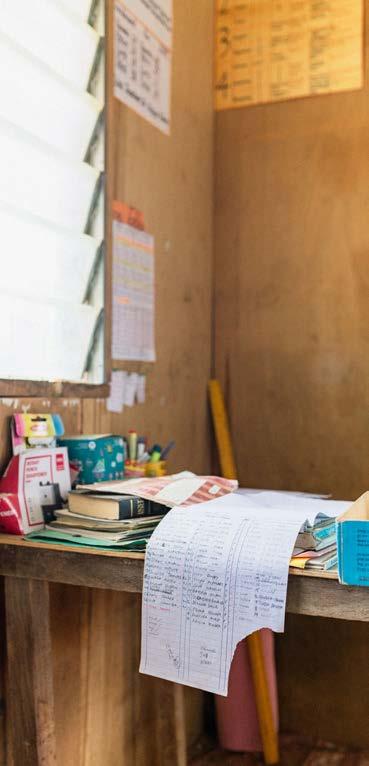 - Joina Iti, Fairtrade farmer, Unen Choit Cooperative, 2022
- Joina Iti, Fairtrade farmer, Unen Choit Cooperative, 2022

Child labour remains a complex and heartbreaking truth. It is estimated that 152 million children are still in child labour, many of whom are working as part of the global food chain.
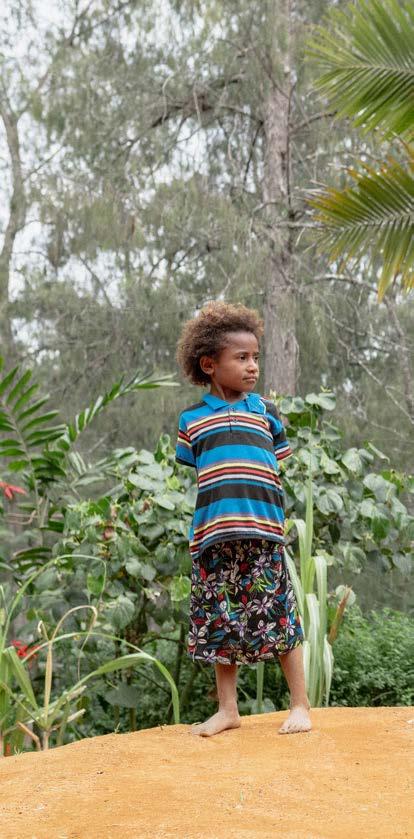
Child labour has many consequences, some more obvious than others. Being forced to work at an early age robs a victim of their childhood, an education, proper care and in some cases, puts their health at risk. When families are not able to earn a decent living from their crops, and youth lack decent employment opportunities, ending child labour remains very difficult. For a family faced with poverty and hunger, there is often little choice.
Fairtrade works to deal with poverty as a root cause of child labour and we have systems in place that seek to identify cases of child labour in supply chains. We specifically choose to work in regions (and products) with a known risk of child labour because this is simply where the most work is needed.
Let’s be clear and transparent – no one can provide a 100% guarantee that a product is free of child labour. But what we can tell you is when we find instances of child labour, we have protocols in place that make sure the child is protected and solutions are found that support both the child and the community without attributing blame.
Fairtrade’s work does not stop there. We need to address the wider causes of abuse and violence against children; to support them and their communities to take action. This includes workshops and focus groups, community-based monitoring and collaboration with governments and non-government organisations.

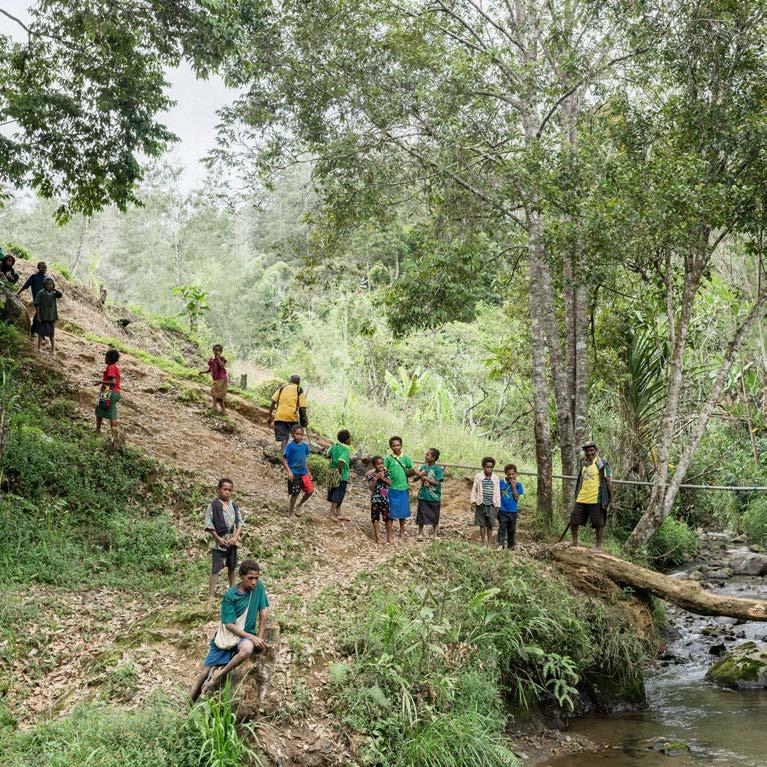

The Democratic Republic of Timor-Leste is one of Australia’s nearest international neighbours, just 700km northwest of Darwin. The two countries share many links including Australia being Timor-Leste’s largest partner in development.
Timor-Leste achieved independence in 2002 and has made considerable economic and social progress since then but 42% of its 1.3 million people still live below the poverty line. Most of the population live in rural areas and are heavily reliant on subsistence agriculture with little or no access to markets. Timor-Leste is one of the most oil-dependent countries in the world, so the government and its partners are working to diversify, particularly by promoting oil and gas processing, tourism and agriculture.
Fairtrade ANZ works with three coffee producer organisations through a range of programs including coffee quality training, gender equality and access to markets. We also support farmers on issues like income diversification, sustainable farming and water security.



Once sorted, these coffee beans in Timor-Leste are fermented for 24 to 48 hours, washed and then dried in large fields where they are covered in tarps overnight to protect them from the moisture of the night air.


While slavery seems like a problem from the history books, there is a very real and ever-present version of slavery that affects nearly 50 million people in 167 countries today.
Modern slavery refers to situations of exploitation that a person cannot refuse or leave because of threats, violence, coercion, deception, and/or abuse of power.
This includes everything from human trafficking and forced labour to unfair practices within supply chains of many of the items that we use or consume, including coffee. The lack of transparency and scale of the problem makes it very difficult for an average person to avoid. A company could easily be enabling some form of modern slavery without even realising it.
Which is why it’s really important to look for slavery – in every link of the supply chain – to find out if it exists and then take action if it’s there. There’s an argument for legislation to compel companies to do this but we believe organisations should take responsibility without being forced to – and Fairtrade is integral to that.
While they are drying in the fields during the day, the coffee beans are stirred every one to two hours so that they are bought to the 11% moisture level that is required to ensure quality. The harvest season generates huge employment opportunities for people in the area which also helps to address some of the ongoing poverty issues.


This machine is an industrial coffee pulper. It is older technology from India but the simplicity suits the needs of the farmers at this large cooperative in Timor-Leste. It uses a rough disc to pulp the coffee and then water is added so that the cherries can be sorted by density.
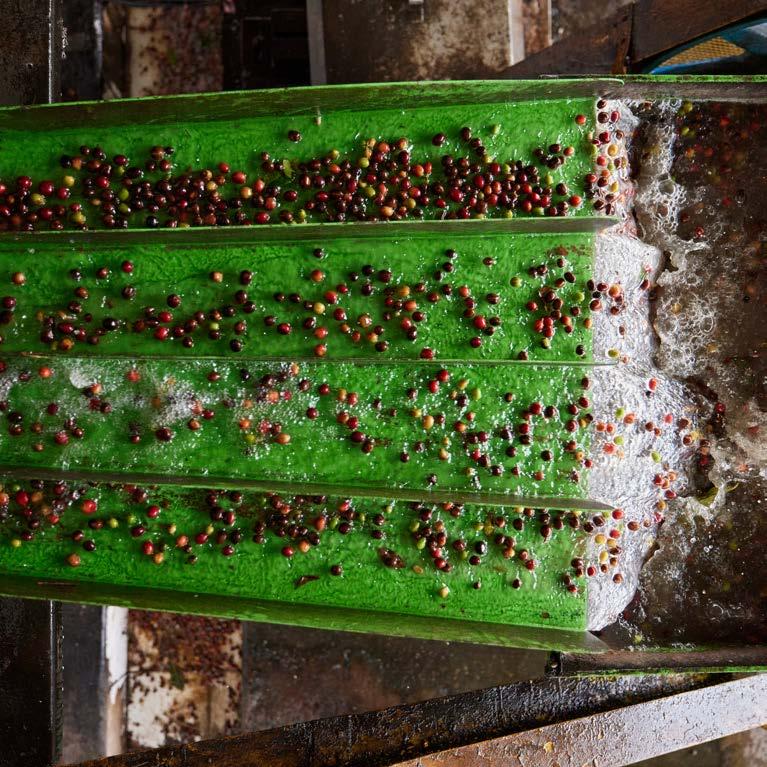


There is no question that climate change is real and affecting each of us in different ways. Droughts, natural disasters and extinction of plants and animals are all a result of changing weather patterns. What’s more, the people who are most deeply affected are those who are the least responsible for it – farmers in developing countries. They are also the least able to respond to climate change unless they are supported by partners like Fairtrade.
First and foremost, Fairtrade deals with the connection between fair pay for farmers and sustainable farming. We recognise the simple truth that farmers in developing countries are often paid very low prices for their goods and that means they have to make tough choices. Even if they care about the long-term future of their land, feeding their families will always come first. This is why fair pay is at the core of everything we do.
However, in addition to addressing the root causes of poverty, environmental protection and sustainable production practices are also ingrained in all our programs. The role of Fairtrade is to support producer organisations to identify climate-friendly actions that will both enable the farmers to reduce their footprint while also benefiting their business.

To be part of a Fairtrade certified producer organisation, farmer members must strive to improve soil and water quality, manage pests, avoid using harmful chemicals, effectively manage waste, reduce their greenhouse gas emissions and protect biodiversity.
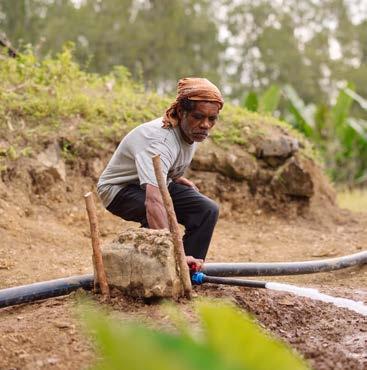
Fairtrade Standards also prohibit the felling of forests of high conservation value. Cooperatives need to establish a continuous process to map risk areas, raise the farmers’ climate awareness and promote climate-friendly production methods.

Fairtrade provides education, training and opportunities for development projects in climate adaptation and carbon credit programs. The Fairtrade Premium is often used to finance environmental actions such as tree planting and improvements in water management. Being part of a cooperative also makes this easier for the producers – it’s strength and power in numbers.

One of the challenges for farmers in Timor-Leste is access to water. Programs, like the one pictured here, to install water tanks and piping not only increase yields for coffee, but also allow farmers to diversify into other crops at different times of the year.
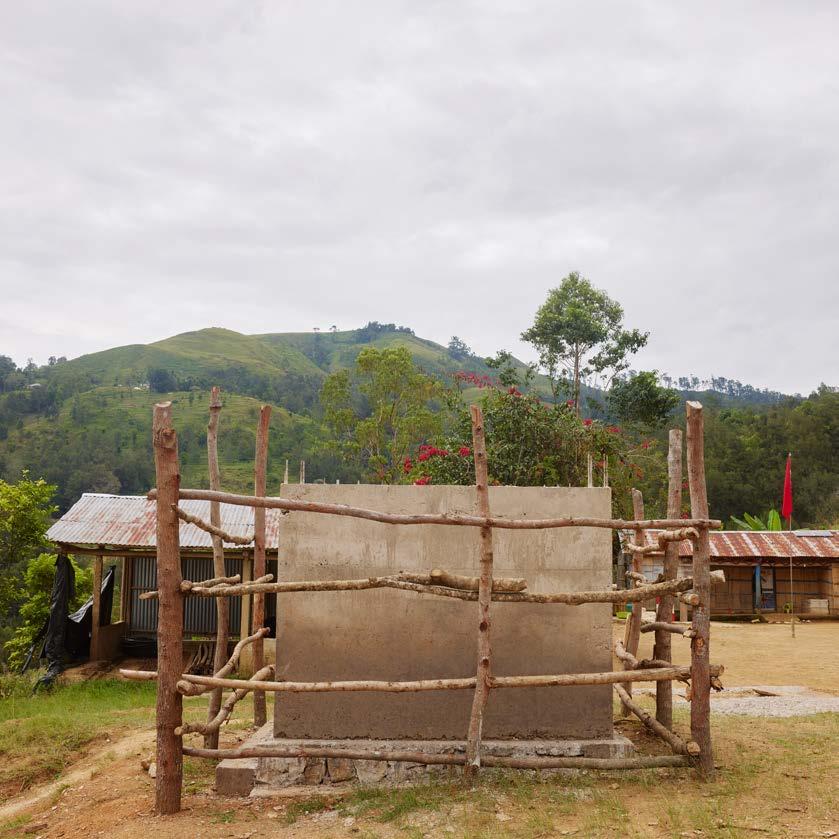
Coffee production in the Pacific is relatively young compared to other coffee growing regions around the world even though coffee has grown in places like PNG and Timor-Leste for generations. As well as its short history, historically coffee was really just farmed as a means of survival, with a focus on harvest. As a result, coffee processing was often overlooked.
In recent years, Fairtrade ANZ has sought to address this through a partnership with Coffee Quality Institute (CQI) to improve the consistency of coffee quality offered to market, by educating farmers on processing techniques and best practice.


Our work with CQI also highlighted the need to address other issues with our coffee producers like farm productivity. These programs start with training for farmers about the best production practices in coffee seedling nurseries to ensure that the plants are as resilient and productive as they can be, and continues throughout the farming and harvesting process.
Coffee in the Pacific is generally organic by default, so we aim to assist farmers to achieve organic accreditation which increases both the price they receive for their green beans, and the breadth of the markets they can sell to.
In the end, we are seeking, through all of our coffee quality initiatives, to assist farmers to see coffee farming not just as a short-term cash crop but as a pathway towards a better future for them and their families.



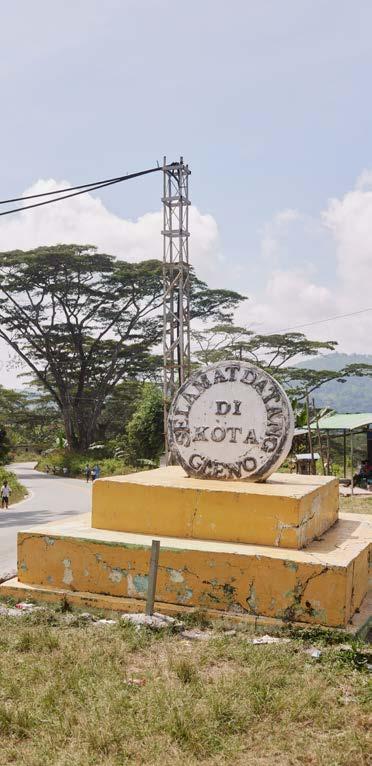


Here’s a story about how one Fairtrade producer organisation in Timor-Leste uses their Fairtrade Premium to make life better for local farmers and their communities.
The healthcare system in Timor-Leste was largely destroyed or damaged during Indonesian occupation prior to independence in 2002. At the time, there were only around 20 doctors left in the country to meet the needs of nearly one million people. While healthcare has improved since then, the vast majority of women still deliver their babies at home without any skilled help or professional care after the birth, and infant mortality rates are high.
This explains why providing health services has been one of the priorities of Cooperativa Cafe Timor (CCT).
CCT was founded just after Timor-Leste gained its independence. Composed of farmers, its remit was to successfully market coffee grown by local villagers.
In 2001, CCT obtained Fairtrade certification and with additional revenue generated from Fairtrade sales, the organisation has implemented:
• A healthcare program that includes seven stationary health clinics and 26 mobile health clinics, which provide weekly health services for communities in remote areas. Collectively the clinics see an average of 18,000 patients per month and services are provided free of charge to all co-op members.
• A business skills development program that provides members with training in bookkeeping, management, English language and computer skills.
• A wholesale purchasing co-op that benefits the local community by providing consumer goods at reasonable prices to small retail outlets in rural areas.
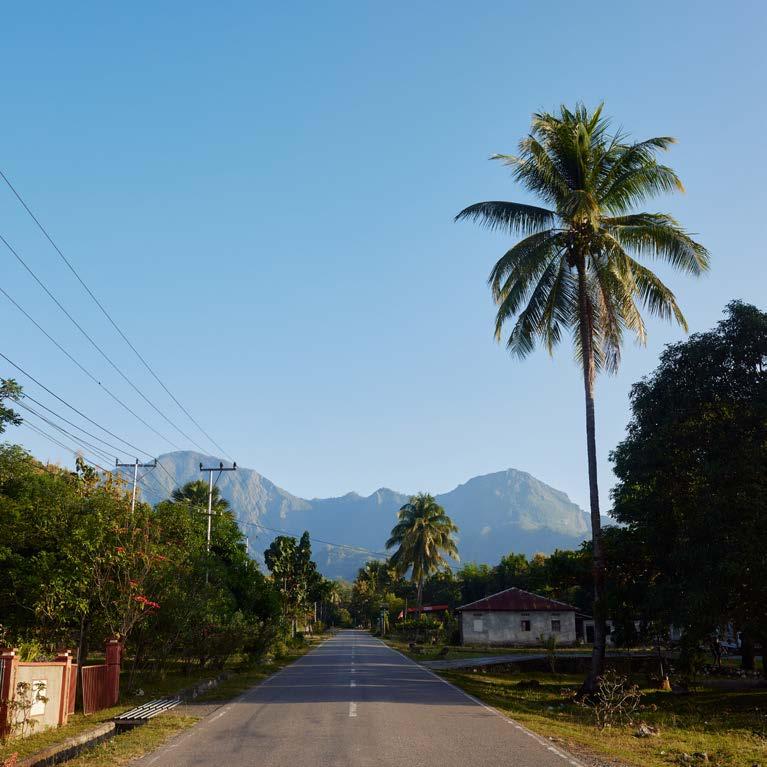



For more information visit: fairtradeanz.org
 fairtradeanz.org
fairtradeanz.org